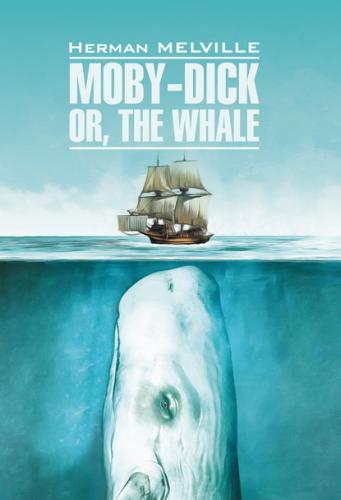Floundered and dived, in play, in chace, in battle,
Fishes of every colour, form, and kind;
Which language cannot paint, and mariner
Had never seen; from dread Leviathan
To insect millions peopling every wave:
Gather’d in shoals immense, like floating islands,
Led by mysterious instincts through that waste
And trackless region, though on every side
Assaulted by voracious enemies,
Whales, sharks, and monsters, arm’d in front or jaw,
With swords, saws, spiral horns, or hooked fangs.”
“Io! Pæan! Io! sing,
To the finny people's king.
Not a mightier whale than this
In the vast Atlantic is;
Not a fatter fish than he,
Flounders round the Polar Sea.”
“In the year 1690 some persons were on a high hill observing the whales spouting and sporting with each other, when one observed; there – pointing to the sea – is a green pasture where our children's grand-children will go for bread.”
“I built a cottage for Susan and myself and made a gateway in the form of a Gothic Arch, by setting up a whale's jaw bones.”
“She came to bespeak a monument for her first love, who had been killed by a whale in the Pacific ocean, no less than forty years ago.”
“‘No, Sir, 'tis a Right Whale,’ answered Tom; ‘I saw his spout; he threw up a pair of as pretty rainbows as a Christian would wish to look at. He's a raal oil-butt, that fellow!’”
“The papers were brought in, and we saw in the Berlin Gazette that whales had been introduced on the stage there.”
“‘My God! Mr. Chace, what is the matter?’ I answered, ‘We have been stove by a whale.’”
“A mariner sat in the shrouds one night,
The wind was piping free;
Now bright, now dimmed, was the moonlight pale,
And the phospher gleamed in the wake of the whale,
As it floundered in the sea.”
“The quantity of line withdrawn from the different boats engaged in the capture of this one whale, amounted altogether to 10,440 yards or nearly six English miles. * * *
Sometimes the whale shakes its tremendous tail in the air, which, cracking like a whip, resounds to the distance of three or four miles.”
“Mad with the agonies he endures from these fresh attacks, the infuriated Sperm Whale rolls over and over; he rears his enormous head, and with wide expanded jaws snaps at everything around him; he rushes at the boats with his head; they are propelled before him with vast swiftness, and sometimes utterly destroyed.
* * * It is a matter of great astonishment that the consideration of the habits of so interesting, and, in a commercial point of view, of so important an animal (as the Sperm Whale) should have been so entirely neglected, or should have excited so little curiosity among the numerous, and many of them competent observers, that of late years must have possessed the most abundant and the most convenient opportunities of witnessing their habitudes.”
“The Cachalot” (Sperm Whale) “is not only better armed than the True Whale” (Greenland or Right Whale) “in possessing a formidable weapon at either extremity of its body, but also more frequently displays a disposition to employ these weapons offensively, and in a manner at once so artful, bold, and mischievous, as to lead to its being regarded as the most dangerous to attack of all the known species of the whale tribe.”
“October 13. ‘There she blows,’ was sung out from the mast-head.
‘Where away?’ demanded the captain.
‘Three points off the lee bow, sir.’
‘Raise up your wheel. Steady!’
‘Steady, sir.’
‘Mast-head ahoy! Do you see that whale now?’
‘Ay, ay, sir! A shoal of Sperm Whales! There she blows! There she breaches!’
‘Sing out! sing out every time!’
‘Ay, ay, sir! There she blows! there – there – thar she blows – bowes – bo-o-o-s!’
‘How far off?’
‘Two miles and a half.’
‘Thunder and lightning! so near! Call all hands!’”
“The Whale-ship Globe, on board of which vessel occurred the horrid transactions we are about to relate, belonged to the island of Nantucket.”
“Being once pursued by a whale which he had wounded, he parried the assault for some time with a lance; but the furious monster at length rushed on the boat; himself and comrades only being preserved by leaping into the water when they saw the onset was inevitable.”
“Nantucket itself,” said Mr. Webster, “is a very striking and peculiar portion of the National interest. There is a population of eight or nine thousand persons, living here in the sea, adding largely every year to the National wealth by the boldest and most persevering industry.”
“The whale fell directly over him, and probably killed him in a moment.”
“‘If you make the least damn bit of noise,’ replied Samuel, ‘I will send you to hell.’”
“The voyages of the Dutch and English to the Northern Ocean, in order, if possible, to discover a passage through it to India, though they failed of their main object, laid open the haunts of the whale.”
“These things are reciprocal; the ball rebounds, only to bound forward again; for now in laying open the haunts of the whale, the whalemen seem to have indirectly hit upon new clews to that same mystic North-West Passage.”
“It is impossible to meet a whale-ship on the ocean without being struck by
